Composition of the Council in the years 01.2020-12.2022 (ST)
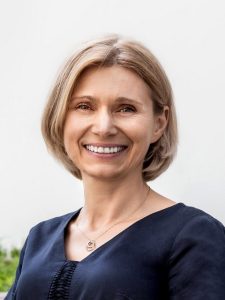
Prof. dr hab. Agnieszka Szumna – wrote her doctoral thesis on the synthesis and structure of supramolecular anion receptors under the supervision of Prof. Jurczak and defended it in 2001 with distinction. Between 2001-2003, she completed her post-doctoral internship at the University of Missouri, Columbia, USA under the guidance of Professor J. Atwood. She was awarded habilitation in 2010 for a monothematic series of works entitled “Chiral Molecular Containers – Synthesis, Structure and Complexing Properties”. The work was distinguished with the Prime Minister’s Award and the Scientific Award of the W. Kołos Division III of the Polish Academy of Sciences. Since 2012, she has been leading a research group at the Institute of Organic Chemistry, Polish Academy of Sciences. In 2017, she was awarded the Marie Skłodowska-Curie and Wilhelm Klemm Lectureship joint prize of the Polish and German Chemical Society (PTChem and GDCh). She was awarded an academic title of professor in 2019. Currently, she is Head of Team No. 9 at the Institute of Organic Chemistry, Polish Academy of Sciences, Warsaw. Professor Szumna’s scientific interests focus on the synthesis of molecular capsules containing in their structure biocompatible components. She has also been working on the development of research related to the use of these capsules as nanocontainers, supramolecular catalysts, drug transporters, components of porous materials and as surface stabilisers of proteins. Her research group uses a wide range of methods related to organic synthesis, mechanochemistry, crystallography and magnetic resonance, and makes intensive use of chiraloptic methods and quantum-mechanical calculations. Prof. Szumna has led several grants funded by the State Committee for Scientific Research, the National Science Centre and the ITN grant under Horizon2020.
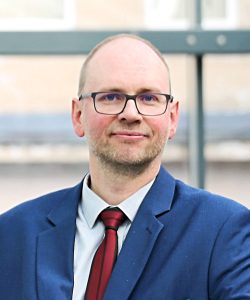
Prof. dr hab. Winicjusz Drozdowski – Vice-Chair of the Council for the Field of Science. He graduated in physics from the Nicolaus Copernicus University in 1996. He was awarded the degree of doctor in 2001 and habilitation in 2011 (specialization: solid-state physics and spectroscopy). Between 2006 – 2008, he completed a research internship at the Delft University of Technology (Netherlands). Since 2015, he has been Head of the Scintillation and Phosphor Materials Spectroscopy Group and since 2016 Vice-Dean of the Faculty of Physics, Astronomy and Informatics, Nicolaus Copernicus University. He is currently leading the Polish-German project “The new semiconductor scintillator β Ga2O3:Ce spectroscopic and scintillation properties testing”. (National Science Centre Beethoven 2). Professor W. Drozdowski’s academic achievements include 68 publications in Philadelphia-listed journals and 45 publications in conference materials, annual reports, etc. The most significant articles focus on the scintillation mechanism and optimization of scintillation properties of modern materials with potential applications in medical diagnostics or space exploration. The experimental techniques used by Professor Drozdowski include gamma spectroscopy (pulse height spectra and scintillation time profiles), radio- and photoluminescence as a function of temperature and thermoluminescence. This is complemented by innovative combined measurements with double excitation (X-rays and infrared).

Prof. dr hab. Małgorzata Kossut – a neurobiologist, a graduate of the Faculty of Biology, University of Warsaw. She was awarded the degree of doctor for the thesis on the issues of influence of sight loss on the development of motor functions in the Necki Institute of Experimental Biology, Polish Academy of Sciences. She did her post-doctoral internship at the University of Pennsylvania and Oxford University. She spent sabbatical (Fulbright scholarship) at the US University of Health Sciences in Bethesda. She is currently a professor at the Nencki Institute and heads the Laboratory of Neuroplasticity. She also works at the University of Humanities and Social Sciences, SWPS, in the Department of Neurocognitive Science. In her research, she focuses on the neuronal and molecular mechanisms of learning and memory and imaging the plasticity of the brain. She also researches the plasticity of the brain after a stroke. She was one of the first to prove the existence of compensatory plastic changes in the adult cerebral cortex. Her research has been funded by several prestigious foreign foundations, such as Howard Hughes Medical Institute, Fulbright Scholarship Programme, the Wellcome Trust or McDonnel – Pew Foundation for Cognitive Neuroscience. She is a member of the Polish Academy of Arts and Sciences and a founding member of the European DANA Alliance for the Brain.
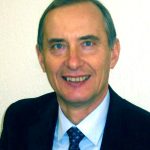
Prof. dr hab. Leszek Rutkowski – graduated in 1977 from the Faculty of Electronics, Wrocław University of Science and Technology (specialization: technical cybernetics systems). In the same year, as a scholarship holder at the Częstochowa University of Technology, he took up doctoral studies at the Institute of Cybernetics, Wrocław University of Science and Technology. Meanwhile, he was working on his doctoral thesis entitled “Non-parametric identification of non-stationary control objects”. In March 1980, he was awarded the degree of doctor of technical sciences by a resolution of the Council of the Institute of Technical Cybernetics. He was conferred the degree of doctor habilitated in technical sciences by the Council of the Faculty of Electronics, Wrocław University of Science and Technology in January 1986. The thesis dealt with the identification of non-stationary systems and classification of images characterized by time-varying probability densities. He was awarded the title of professor in November 1995 at the request of the Scientific Council of the Faculty of Electrical Engineering, Automatics and Electronics, AGH University of Science and Technology, Cracow. Prof. dr hab. inż. Leszek Rutkowski is the author and co-author of about 200 publications, more than 30 of which have been published in highly prestigious IEEE journals. These publications have been quoted many times in world literature (according to Web of Science H = 41). In November 2004 he was elected by the IEEE Board of Directors as IEEE Fellow (one of the world’s most respected scientific awards) for “contributions to neurocomputing and flexible fuzzy systems”. In 2004, he was elected a correspondent member of the Polish Academy of Sciences and in 2016 a full member of the Polish Academy of Sciences. He is a laureate of many international and national awards, competitions organized by the National Science Centre and the Foundation for Polish Science (e.g. “MISTRZ” and “TEAM”), he is also Doctor honoris causa awarded by AGH UST in Cracow (2014).
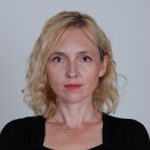
Dr hab. Agnieszka Janiuk, prof. CFT PAN – a graduate of the Faculty of Physics of the University of Warsaw (diploma in the Department of Astronomy in 1998). She was awarded the degree of doctor of physical sciences in astronomy from the Doctoral College, Nicolaus Copernicus Astronomical Center of the Polish Academy of Sciences (diploma with honours, 2003). She has completed several scientific fellowships, among others in Scuola Internazionale Superiore di Studi Avanzati, Triest, in Harvard Smithsonian Center for Astrophysics, the USA, in Max Planck Institute for Astronomy and Astrophysics, Munich, in Inter University Center for Astronomy and Astrophysics, Pune, India, and post-doctoral contract at the Faculty of Physics, University of Nevada, Las Vegas, the USA. She was awarded the degree of doctor habilitated in physical sciences in astronomy by the Scientific Council of the Nicolaus Copernicus Astronomical Center of the Polish Academy of Sciences in Warsaw in April 2011 for the thesis entitled “Structure and variability of the central engine responsible for the gamma-ray phenomenon”. The procedure for the award to Dr hab. A. Janiuk of the academic title of professor was initiated by the Scientific Council of the Nicolaus Copernicus Astronomical Center of the Polish Academy of Sciences in 2019. Agnieszka Janiuk has been working in the Centre for Theoretical Physics of the Polish Academy of Sciences since October 2010; first in the position of an assistant professor and since autumn 2011 in the position of a professor. Between 2011 and 2015, she was the Deputy Director of the Center for Theoretical Physics of the Polish Academy of Sciences for Scientific and General Affairs. She has been running her own astrophysics research group in the Center since 2011. To date, 5 doctoral students and 3 postdoctoral interns have worked in the group, 1 master’s thesis has been written, and there have been numerous scientific internships in which students of senior years of degree programmes in physics and astronomy have taken part. In her work Prof. Janiuk focuses on astrophysics of accretion disks in binary systems with stars, construction of active galactic nuclei and quasarsars, as well as the origin of gamma flares and nucleosynthesis of heavy elements in these objects. Her latest works concern the modelling of the collapse of massive stars, the formation of black holes, and electromagnetic signals accompanying compact star collisions which are the sources of gravity waves. She is the author of over 120 publications in the field of astrophysics and has managed several grants from the State Committee for Scientific Research, the Ministry of Science and the National Science Centre. A. Janiuk is a member of the Polish Astronomical Society (between 2009-2011 she was the member of the Board of the Polish Astronomical Society), the European Astronomical Society (she has been participating in the works of the Sustainability Working Group since 2020), and the International Astronomical Union participating in the activities of Commission B1 (Computational Astrophysics). In 2015 and 2019 she became twice a member of the Committee on Astronomy of the Polish Academy of Sciences. Furthermore, she participates in the works of the National Council of Particle Astrophysics.
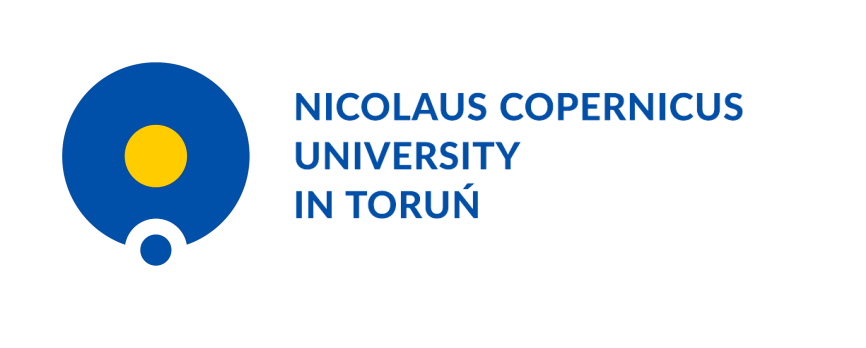
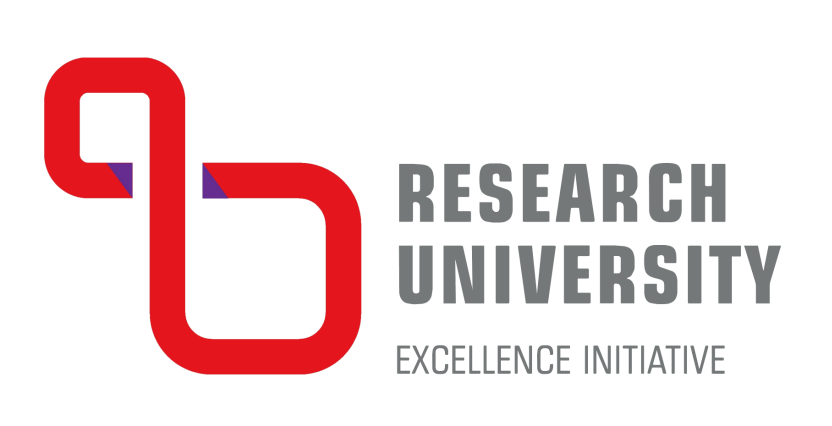
 ul. Gagarina 7, 87-100 Toruń
ul. Gagarina 7, 87-100 Toruń